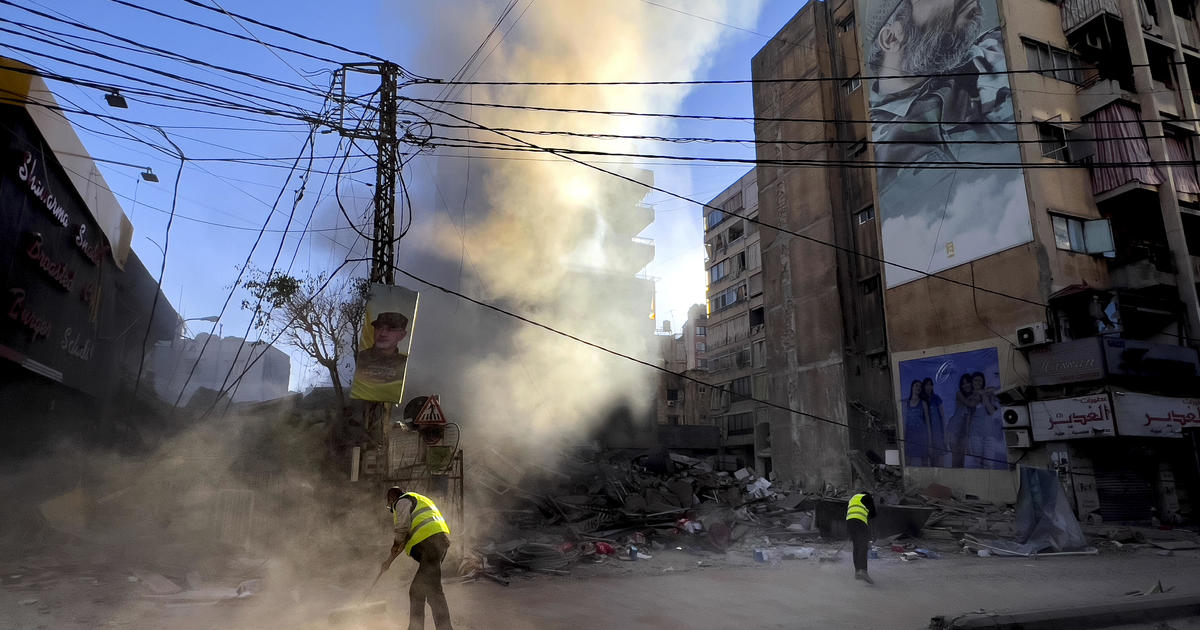Israel’s ongoing military operations in Lebanon and Gaza have resulted in a significant escalation of the conflict, causing widespread destruction and numerous casualties. The Israeli military’s announcement of imminent strikes targeting Hezbollah’s financial infrastructure in Lebanon, coupled with the ongoing offensive in Gaza, signals a deepening of the crisis and raises serious concerns about the humanitarian situation. The targeting of civilian areas and infrastructure, including hospitals, further exacerbates the already dire conditions on the ground. This situation demands urgent international attention and intervention to prevent further loss of life and widespread suffering. The conflict’s complex dynamics and the potential for further escalation highlight the urgent need for a diplomatic solution to avert a broader regional conflict.
Israel’s Offensive in Lebanon: Targeting Hezbollah’s Finances
The Israeli Defense Forces (IDF) have declared their intention to strike Hezbollah’s financial network, specifically targeting al-Qard al-Hassan, across Lebanon. This marks a significant escalation of the conflict, moving beyond direct military confrontations to aim at the economic backbone of the Iran-backed militant group. The IDF has issued evacuation warnings for areas associated with Hezbollah’s financial activities, urging civilians to vacate these zones immediately.
Impact on Lebanese Civilians
While the IDF aims to disrupt Hezbollah’s operations, the targeting of al-Qard al-Hassan raises serious concerns regarding the safety of Lebanese civilians. Al-Qard al-Hassan, though sanctioned by the U.S. and Saudi Arabia for its ties to Hezbollah, also provides financial services to ordinary Lebanese citizens. Therefore, the Israeli strikes could inadvertently inflict harm on innocent individuals and further destabilize the already fragile Lebanese economy and social fabric. The lack of clarity regarding the scope of the evacuation warnings compounds this concern, raising questions about the accuracy and effectiveness of the measures in protecting non-combatants. This raises significant humanitarian concerns.
Geopolitical Implications
The targeting of Hezbollah’s financial infrastructure underscores the intensifying conflict between Israel and Hezbollah, with significant regional geopolitical implications. Iran, Hezbollah’s key backer, has consistently expressed strong support for the group and could retaliate. This action could trigger a broader conflict, engaging various regional actors and escalating tensions across the Middle East. The already precarious situation in Lebanon risks becoming further destabilized, adding to the country’s existing challenges, notably the deep economic crisis and the ongoing political instability. The international community must step in decisively and attempt to manage this situation through diplomatic channels.
The Gaza Offensive: Widespread Casualties and Humanitarian Crisis
Israel’s ongoing ground and air operations in northern Gaza continue to cause widespread devastation. The IDF is carrying out a large-scale operation, citing the regrouping of Hamas forces in the area. However, these operations are causing immense human suffering, resulting in a shocking number of casualties. Reports indicate dozens of fatalities and widespread injuries amongst civilians in towns and areas targeted, particularly in Beit Lahiya.
Devastating Impact on Civilians
The IDF’s actions are leading to a significant humanitarian crisis in Gaza, where healthcare facilities struggle to cope with the influx of casualties and with ongoing attacks on healthcare providers. The sheer number of deaths and injuries, coupled with the destruction of homes and essential infrastructure, is painting a grim picture of the plight of Gazans. Reports of attacks on hospitals further worsen the already precarious medical situation in Gaza. International aid groups such as Doctors Without Borders (MSF) have voiced deep concern over the deteriorating situation and called on Israel to cease all attacks on hospitals and medical infrastructure.
International Response and Calls for a Ceasefire
The international community has urged Israel to establish a ceasefire, amidst widespread condemnation over the high number of casualties. The U.S., among others, has pressed Israel for a cessation of hostilities in Gaza. However, neither Israel nor Hamas appears to be currently inclined toward peace talks, despite months of failed negotiations. This leaves the area under ongoing threat with further intensification of violence.
Escalation and International Involvement
The recent drone attack targeting Israeli Prime Minister Benjamin Netanyahu’s house and the resulting reciprocal action demonstrate the volatile and rapidly escalating nature of this ongoing conflict. The events highlight the high stakes and potentially far-reaching consequences of the conflict, and highlight the concerns surrounding international involvement. The calls for a cease-fire, while present, haven’t resulted in any significant action. This is exacerbated by ongoing Israeli military operations coupled with a lack of commitment to negotiations from both sides.
U.S. Involvement and Diplomatic Efforts
The U.S. continues to engage with both Israel and the relevant regional players, albeit with mixed results. High-level discussions and calls between U.S. and Israeli officials demonstrate ongoing efforts to de-escalate the conflict. However, Israel’s commitment to its national interests takes precedence in decisions, suggesting a potential gap in understanding between allies. The limited progress on ceasefire negotiations underscores the difficult challenge involved in bringing this conflict to a peaceful conclusion. This highlights the difficult role the US and other international parties have in mediating and de-escalating conflicts in the region.
Take Away Points
- Israel’s military operations in Lebanon and Gaza have caused a significant humanitarian crisis, resulting in widespread destruction and many casualties.
- The targeting of Hezbollah’s financial infrastructure in Lebanon raises concerns about the safety of Lebanese civilians.
- The ongoing offensive in Gaza is devastating, leaving countless people dead or injured.
- International calls for a ceasefire haven’t resulted in a cessation of hostilities.
- The U.S. remains engaged in diplomatic efforts, though the results have been limited. A decisive shift toward peace is needed to reduce the ongoing threat to civilian lives and to stabilize the already precarious geopolitical environment.




